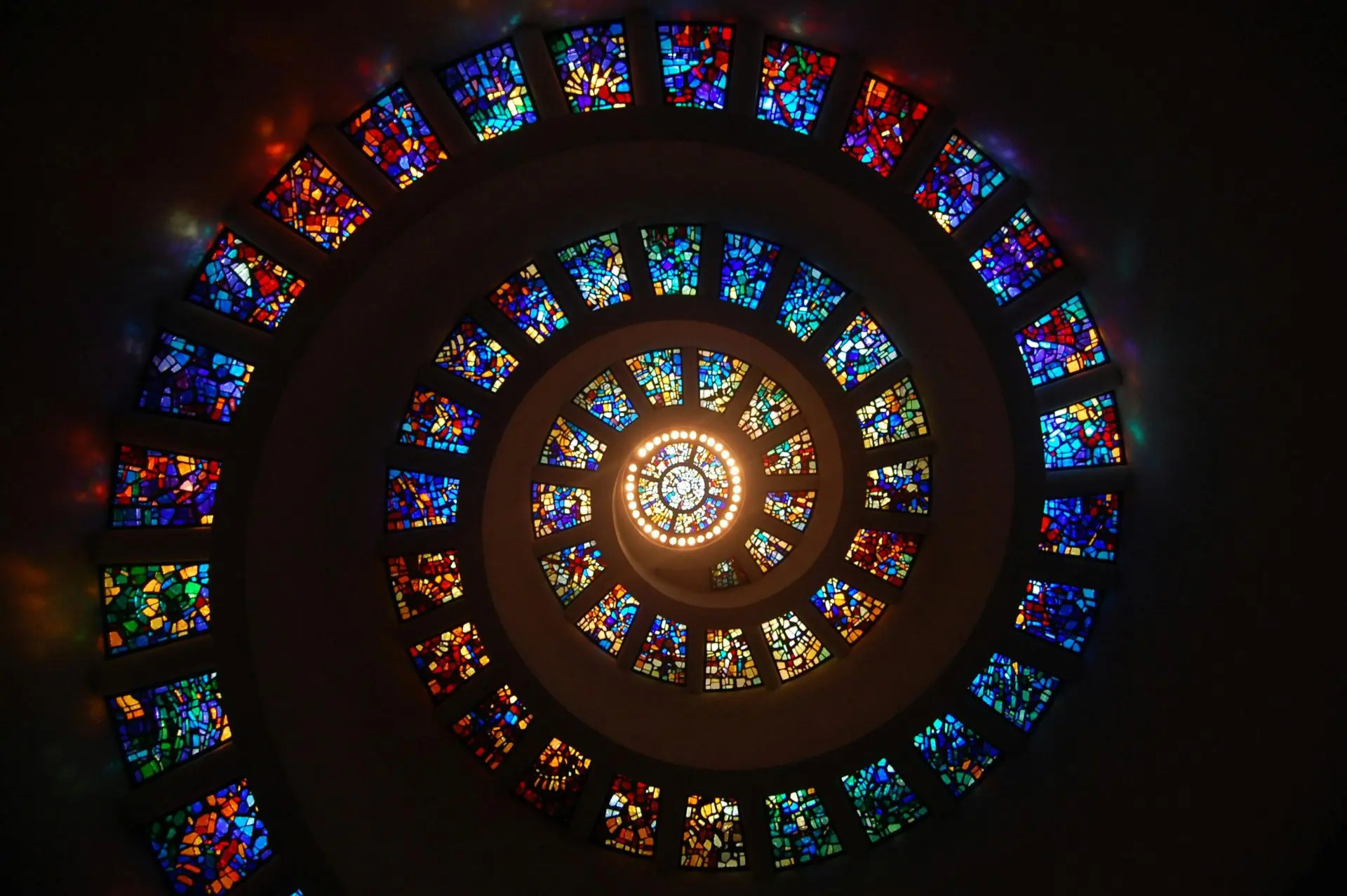Vedanta’s Stance on Death and the Afterlife

Looking for more amazing products? Check out our online store and explore our collection here! Happy shopping!
Before diving in, please note: This post is for informational purposes only. If you’d like to know more about how we approach topics, feel free to check out our friendly Disclaimer Page.
Hey there, amazing readers! 
We’re committed to delivering quality posts, and your support (even just sticking around despite the ads) means everything to us. So, bear with us, and thanks for helping us keep the good vibes rolling. Now, on to the fun stuff!
TRANSLATE BUTTON AT THE END OF THE ARTICLE
Introduction to Vedanta’s beliefs
Vedanta, a school of Hindu philosophy, delves into the nature of reality and the ultimate goal of human existence.
At its core, Vedanta seeks to uncover the true essence of the self and its relationship to the universe.
Central to Vedanta is the idea that there is a transcendent reality beyond the physical world that can be realized through spiritual practice and self-inquiry.
This philosophy offers profound insights into the nature of life, death, and the afterlife, providing a unique perspective on these universal mysteries.
Understanding death in Vedanta
In Vedanta, death is not viewed as the end of existence but rather as a transition from one state of being to another.
It is believed that the true self, or Atman, is eternal and indestructible, transcending the limitations of the physical body.
Death is seen as the shedding of the outer shell of the body, allowing the soul to move on to its next phase of existence.
This perspective on death helps individuals approach the end of life with a sense of peace and acceptance, knowing that the essence of who they are will continue beyond the physical realm.
The concept of the soul in Vedanta
According to Vedanta philosophy, each individual possesses a divine spark known as the Atman, which is ultimately connected to the universal consciousness, or Brahman.
The soul is seen as eternal, unchanging, and unaffected by the fluctuations of the material world.
This belief in the eternal nature of the soul gives comfort to those grappling with the concept of death, as it suggests that the true essence of who they are will endure beyond the confines of the physical body.
Reincarnation in Vedanta philosophy
Vedanta introduces the concept of reincarnation, the belief that the soul undergoes a series of births and deaths in various forms until it achieves liberation, or Moksha.
Reincarnation is viewed as a process of spiritual evolution, where the soul learns and grows through each lifetime, ultimately moving closer to its true nature.
This cyclical view of life and death offers a broader perspective on existence, emphasizing the interconnectedness of all living beings and the continuous journey towards self-realization.
Karma and its role in afterlife
Central to Vedanta’s teachings on the afterlife is the concept of karma, the law of cause and effect that governs the moral and spiritual consequences of one’s actions.
According to Vedanta, individuals create their future experiences through their thoughts, words, and deeds, shaping their destiny in this life and beyond.
The afterlife is seen as a reflection of one’s accumulated karma, where individuals reap the fruits of their actions, whether positive or negative, in the form of joy or suffering.
Paths to liberation in Vedanta
Vedanta offers various paths to achieving liberation from the cycle of birth and death, known as Samsara.
These paths include Jnana Yoga (the path of knowledge), Bhakti Yoga (the path of devotion), Karma Yoga (the path of selfless action), and Raja Yoga (the path of meditation).
Each path caters to individuals with different temperaments and inclinations, providing diverse approaches to self-realization and spiritual growth.
By following one’s chosen path with sincerity and dedication, one can ultimately attain liberation and transcend the cycle of rebirth.
The importance of self-realization
In Vedanta, self-realization is the key to unlocking the true nature of the self and understanding one’s connection to the divine.
Through self-inquiry, introspection, and spiritual practice, individuals can come to recognize the eternal nature of the soul and its inherent relationship to the ultimate reality, Brahman.
Self-realization is not merely an intellectual exercise but a profound experience of unity and oneness that transcends the limitations of the ego and the material world.
Accepting the impermanence of life
Vedanta teaches individuals to embrace the impermanence of life and the transient nature of the physical world.
By recognizing the ever-changing nature of existence, one can cultivate a sense of detachment from material possessions and worldly attachments, focusing instead on the eternal essence of the self.
This acceptance of impermanence allows individuals to navigate life’s challenges with grace and resilience, knowing that everything in the material realm is temporary and fleeting.
The illusion of individuality in Vedanta
According to Vedanta, the sense of individuality and separateness that we experience in the material world is ultimately an illusion.
Beneath the surface of perceived differences lies a fundamental unity that connects all beings at the level of the soul.
This understanding of unity in diversity encourages individuals to transcend their limited identities and cultivate a sense of universal love and compassion towards all living beings.
By recognizing the illusion of individuality, one can move closer to the realization of their true nature as part of the cosmic whole.
Views on heaven and hell in Vedanta
In Vedanta, heaven and hell are not seen as physical places in the afterlife but rather as states of consciousness that individuals create through their thoughts and actions.
Positive thoughts and virtuous deeds lead to heavenly states of joy and bliss, while negative thoughts and harmful actions result in hellish states of suffering and pain.
These realms are not external locations but internal experiences that individuals undergo based on their karmic tendencies and spiritual evolution.
By cultivating positive qualities and engaging in righteous conduct, individuals can create their own heaven on earth and in the afterlife.
Practices for a peaceful transition
Vedanta offers practical guidance for individuals facing the end of life and the transition to the afterlife.
By cultivating qualities such as detachment, compassion, forgiveness, and selflessness, one can prepare oneself for a peaceful and harmonious departure from the physical realm.
Practices such as meditation, prayer, self-inquiry, and service to others can help individuals navigate the process of dying with grace and acceptance, allowing them to transition to the next phase of existence with a sense of peace and equanimity.
Living life in accordance with Vedanta teachings
To live life in accordance with Vedanta teachings is to cultivate virtues such as compassion, truthfulness, nonviolence, and selflessness in daily life.
By aligning one’s thoughts, words, and actions with the principles of Vedanta, individuals can lead a life of purpose, meaning, and spiritual fulfillment.
Practicing self-inquiry, meditation, and selfless service can help individuals deepen their understanding of the self and the ultimate reality, leading to a life of inner peace, joy, and contentment.
By living in harmony with Vedanta philosophy, individuals can navigate the complexities of life with wisdom and grace, ultimately realizing their true nature and purpose in the universe.
Conclusion
Vedanta’s stance on death and the afterlife offers a profound and insightful perspective on the nature of existence and the eternal journey of the soul.
By understanding death as a transition, recognizing the eternal nature of the soul, embracing the concept of reincarnation and karma, and seeking self-realization through spiritual practice, individuals can navigate the mysteries of life and death with grace and wisdom.
Vedanta’s teachings on the impermanence of life, the illusion of individuality, and the importance of living in accordance with spiritual principles provide a roadmap for individuals seeking to find meaning, purpose, and peace in the ever-changing landscape of existence.
Through self-inquiry, meditation, and service to others, individuals can align themselves with the timeless truths of Vedanta, ultimately transcending the cycle of birth and death and realizing their true nature as part of the divine cosmic whole.

The Enlightenment Journey is a remarkable collection of writings authored by a distinguished group of experts in the fields of spirituality, new age, and esoteric knowledge.
This anthology features a diverse assembly of well-experienced authors who bring their profound insights and credible perspectives to the forefront.
Each contributor possesses a wealth of knowledge and wisdom, making them authorities in their respective domains.
Together, they offer readers a transformative journey into the realms of spiritual growth, self-discovery, and esoteric enlightenment.
The Enlightenment Journey is a testament to the collective expertise of these luminaries, providing readers with a rich tapestry of ideas and information to illuminate their spiritual path.
Our Diverse Expertise
While our primary focus is on spirituality and esotericism, we are equally passionate about exploring a wide range of other topics and niches 

To ensure we provide the most accurate and valuable insights, we collaborate with trusted experts in their respective domains 
Our blog originally focused on spirituality and metaphysics, but we’ve since expanded to cover a wide range of niches. Don’t worry—we continue to publish a lot of articles on spirituality! Frequently visit our blog to explore our diverse content and stay tuned for more insightful reads.
Hey there, amazing reader! 
Check out our store here and take a peek at some of our featured products below! Thanks for being awesome!











